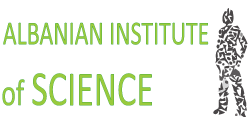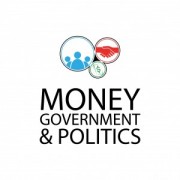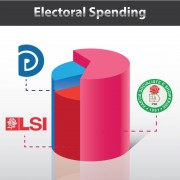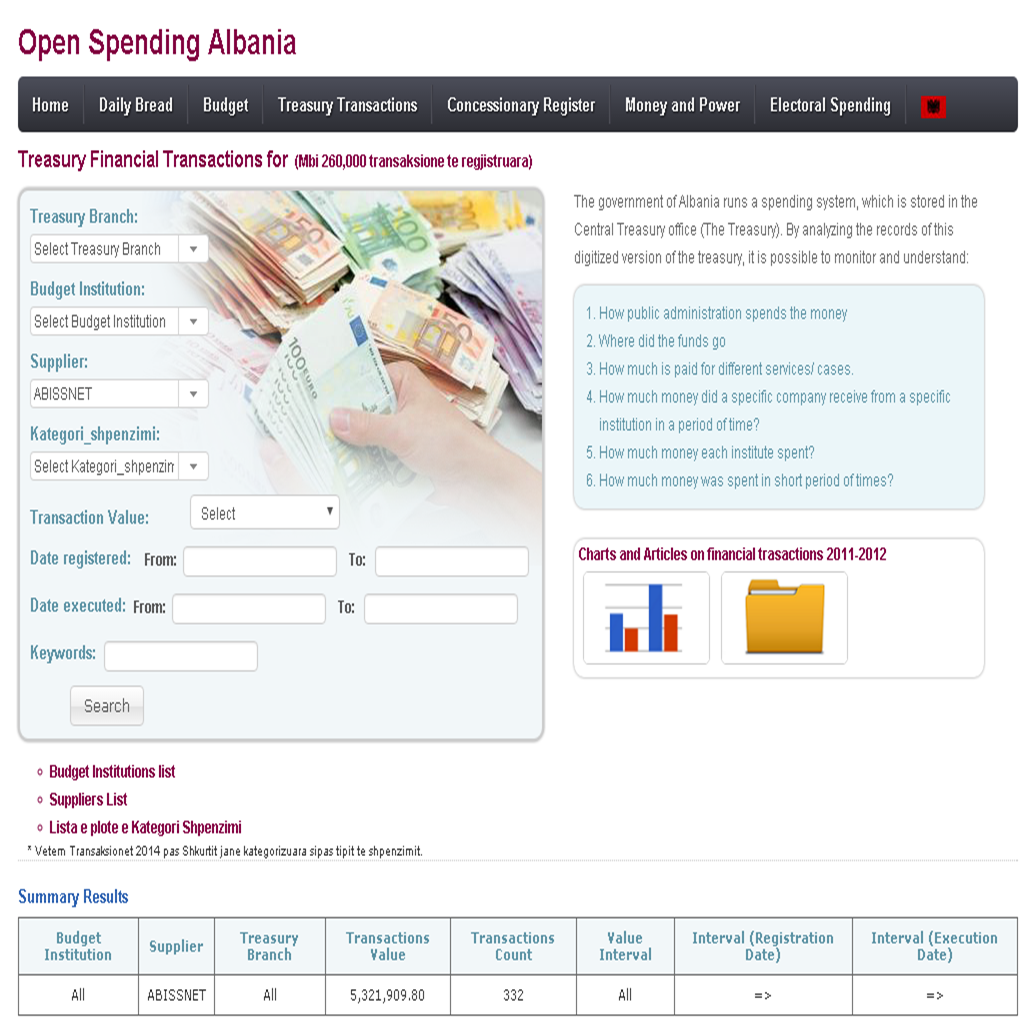It is the first time that a civil society project in Albania provided the public with detailed information about every transaction of the State Treasure, including the transaction date, purpose, number of invoice, and the beneficiary. Through its Open Spending Albania portal, the Treasury Transactions, the Albanian citizens had the opportunity to understand how taxpayers’ money is spent (Where does my Money Go). In August 2014, the public was informed through the open data provided by the Treasury Transactions about several payments made by several state institutions to ABISSNET, a private company owned (on the date of transactions and contracts involving payments) by Koço Kokëdhima, and MP of the ruling majority. The transaction tables appeared on the front page of newspapers like Tema, RD , Ora News, Gazeta Shqiptarja, ABC, etc. They also became part of statuses on Facebook and Twitter of people, who have a significant role in the public debate, and finally caused some reaction by the media and by the opposition parliamentary group of the Democratic Party.
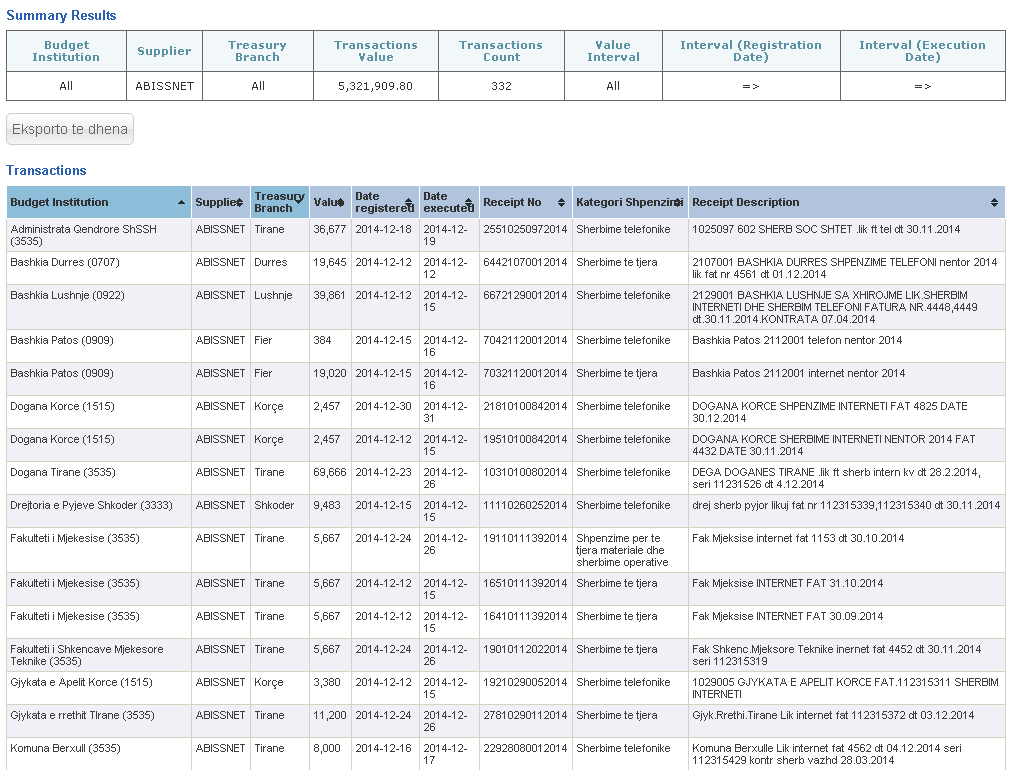
A group of Members Parliamentary addressed the Constitutional Court asking for the removal abrogate of the mandate of MP Koço Kokëdhima referring to Article 70, point 3 and 4 of the Constitution. This article of the Constitution bans MPs from exercising economic and profitable activities using public money. The request of the opposition parliamentary group was also based on Articles 7 and 13 of the Rules of Procedure of the Assembly, and Article 28 of Law No. 9367, dated 7. 04. 2005, On prevention of conflict of interest in exercising public functions. The motion and lawsuit submitted by the MPs to the Constitutional Court were also accompanied by evidence, including tables and databases from our portal Spending Data Albania (page 2 and 3 under the title ‘Facts and Circumstances’).
Following several meetings of the Assembly Committee for Review of Mandates and a long court process initiated by MPs of the Opposition Parliamentary Group, today, on 9 May 2016, the Constitutional Court found the mandate of MP Koço Kokëdhima incompatible (with his activity), and decided to remove abrogate his mandate.
Since 2014, there have been dozens of media articles and declaration based on the open data provided by Treasury Transactions under the Open Spending Albania portal. This is a typical good example of how #OpenData and #OpenKnowledge can be used to control conflict of interest, nepotism, distribution of public money, abuse, corruption, etc.
The Albanian Institute of Science (AIS), a non-governmental Albanian organization continues to open data about the Treasury Transactions, Public Contracts and Tenders, Public Budget, Assets of High-Level Officials and Judges, Electoral Spending, etc., with the objective being increased transparency and civic monitoring through the opening of public data. Our projects, Money, Governance and Politics MGP, and Open Procurement, continue to build instruments for empowering citizens through information, transparency and civic monitoring by opening publican governmental data.
